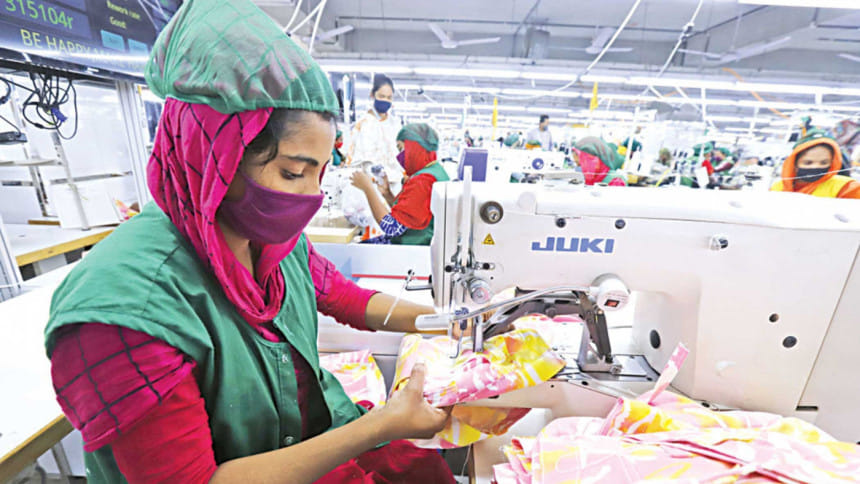Due diligence laws must be a shared burden

We recently saw the announcement of new supply chain "due diligence" laws by the European Union (EU), which are aimed at making multinational businesses accountable for social and environmental transgressions in supply chains. The idea of such laws has been on the cards for some considerable time, and they have huge implications for RMG supply chains.
For many years, fashion retailers have been accused of outsourcing poor environmental and social practices to Asia. It is claimed that they are turning a blind eye to supply chain issues, whether it is poor treatment of workers, forced labour or damage to the environment. The reason such issues are so pertinent to the RMG industry is that it is the one industry which, perhaps more than any other, has been outsourced from the West to Asia.
What do these laws mean and how will they affect garment suppliers? The official draft suggests that to comply with the EU's proposed corporate due diligence laws, companies would need to meet a number of criteria. These include integrating due diligence into their sustainability policies; identifying actual or potential adverse human rights and environmental impacts; preventing or mitigating potential impacts; bringing to an end or minimising the actual impacts; establishing and maintaining a complaint procedure; monitoring the effectiveness of the due diligence policy and measures; and publicly communicating on due diligence.
How much of a difference will such laws make, and how will they impact garment suppliers? Well, fashion retailers already carry out a significant level of due diligence on their suppliers. There has been a huge increase in environmental and social auditing in recent years. Fashion retailers use these audits as a kind of insurance tool to maintain standards throughout the supply chains. However, there is no legal requirement to carry out such audits, and there is very little stopping a retailer from working with whomever supplier it wishes. The big worry for fashion retailers is illegal subcontracting, which still goes on in some supply chains and means that retailers end up with supply chain blind spots.
The broad point is that the current model as far as due diligence is concerned is a voluntary one. Fashion brands and retailers follow it to a large extent because the reputational risk of not doing so is simply too great.
But with the proposed EU laws coming into effect, supply chain due diligence will turn mandatory from voluntary. In many ways, I support this as it will go some way towards levelling the playing field for our customers, and potentially suppliers. In order to avoid falling foul of the due diligence laws, retailers may choose to work mainly with the "best in class" suppliers to mitigate their outsourcing risks. This, in turn, would reward the suppliers who have invested heavily in social and environmental governance issues. In theory, social and environmental standards could be raised right across the board.
My concern, however, is that the burden of following due diligence will fall almost entirely on the suppliers. I worry that it could mean more audits, more box-ticking, and increased costs for RMG factories. As suppliers, we already face a huge burden where audits are concerned, and these are costly, time-consuming and, in many cases, repetitive. Experience tells us that retailers will pass costs and responsibilities down the supply chains wherever possible. We have already seen this with voluntary agreements, and there is no reason to think any differently if due diligence regulations become legally binding.
In light of all this, if the due diligence laws are introduced in the European Union, I think it would be an opportune time for both suppliers and customers to sit down and decide how we are all going to follow the new guidelines. It is in all our interests to sing from the same hymn sheet on this issue.
In summary, then, yes, let's have new laws around due diligence, and let's shift away from these issues being handled through a voluntary approach. But let's also use this opportunity for fashion suppliers to enter an open dialogue, where we all discuss exactly what the new laws will mean, and which party will be responsible for ensuring that no one falls foul of the new regulations.
I talk of cooperation and partnership a lot and on this issue, it is more important than ever. We need to work together on this.
Mostafiz Uddin is the managing director of Denim Expert Limited. He is also the founder and CEO of Bangladesh Denim Expo and Bangladesh Apparel Exchange (BAE).

 For all latest news, follow The Daily Star's Google News channel.
For all latest news, follow The Daily Star's Google News channel. 



Comments